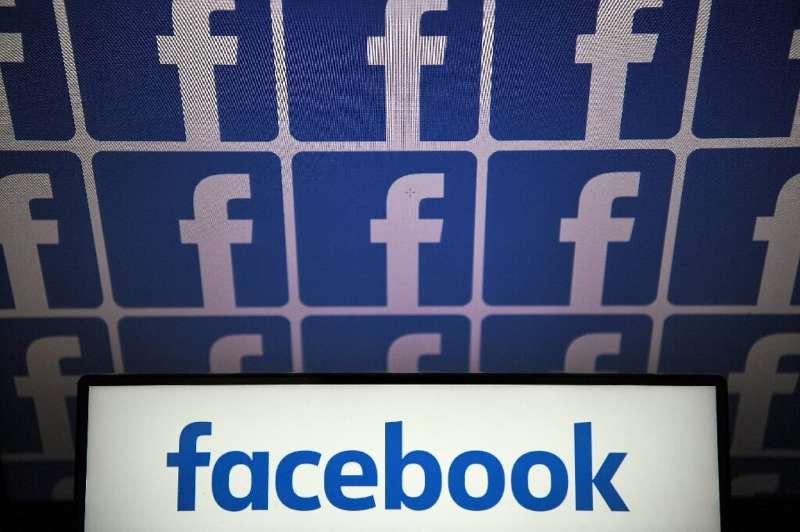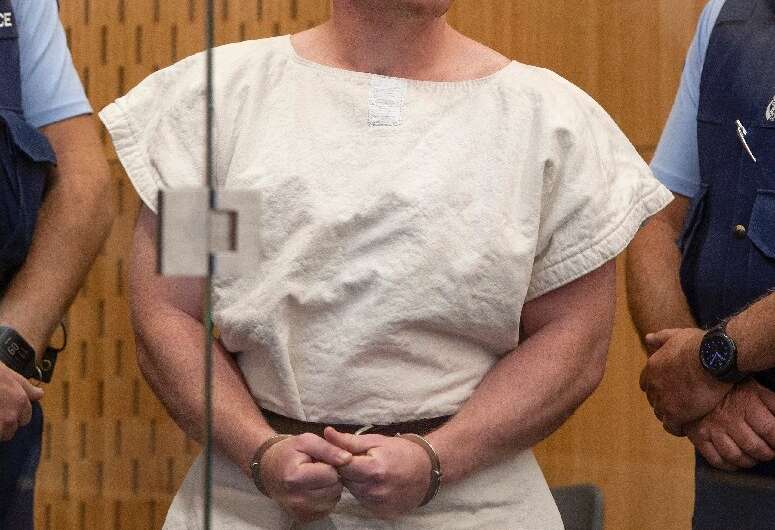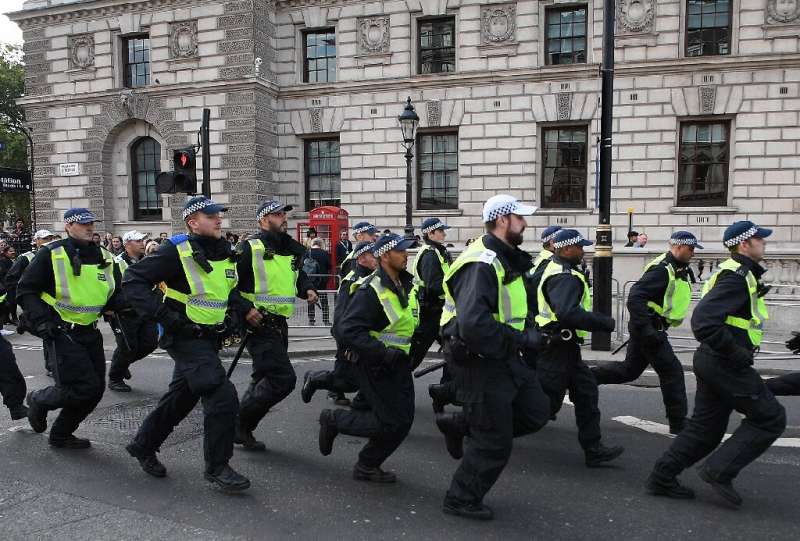Facebook taps London police to track terror livestreams

Facebook on Tuesday teamed up with the London police as part of a ramped-up effort to thwart live-streams of terror attacks such as the New Zealand mosque massacre.
A self-professed white supremacist used a head-mounted camera in March to broadcast live footage on Facebook of him attacking two mosques in the city of Christchurch.
The alliance announced on Tuesday was described as a new collaboration with crime fighters to train software to more quickly spot and filter violent imagery fed to the platform by "dangerous" groups or individuals.
"The video of the attack in Christchurch did not prompt our automatic detection systems because we did not have enough content depicting first-person footage of violent events to effectively train our machine learning technology," Facebook said in a blog post.
"That's why we're working with government and law enforcement officials in the US and UK to obtain camera footage from their firearms training programs -– providing a valuable source of data to train our systems."
Facebook and platforms such as YouTube came under intense criticism for initially failing to detect the broadcast and then struggling to take down its uploads that proliferated online.
New Zealand's Jacinda Ardern and other world leaders in May launched a "Christchurch Call to Action" against online extremism—a campaign major platforms joined later that month.
The California-based social media behemoth said it was updating and refining its policies for dealing with extremism and online hate.
"Some of these changes predate the tragic terrorist attack in Christchurch, New Zealand, but that attack, and the global response to it in the form of the Christchurch Call to Action, has strongly influenced the recent updates to our policies and their enforcement," Facebook said.

In the absence of a globally accepted definition of what a terrorist organization is, Facebook developed its own with input from counter-terrorism, humanitarian law, police, and human rights experts.
"The updated definition still focuses on the behavior, not ideology, of groups," Facebook said.
While the prior definition focused on acts of violence intended to achieve a political or ideological aim, Facebook's new definition includes attempts at violence, particularly when directed toward civilians with the intent to coerce and intimidate.
Machine learning
London's Metropolitan Police said the initiative will see it provide Facebook footage of training by its firearms command unit.
The videos will be captured on body cameras provided by Facebook that London's Firearms Command officers wear during exercises.
"Firearms Command regularly train in how to respond to a wide variety of scenarios, from terrorist incidents to hostage situations, on land, public transport and water," the London police said.
"The footage they provide will show a 'shooter' perspective in a broad range of situations."
The London police said its footage will be combined with video Facebook is already using from law enforcement agencies in the United States.

The new technology will "also significantly help prevent the glorification of such acts and the promotion of the toxic ideologies that drive them," Britain's Special Operations assistant commissioner Neil Basu said.
The machine learning tools will also be applied to Facebook's hugely successful Instagram platform as it captures more and more younger users worldwide.
'Bad actors'
The Christchurch images were broadcast live for 17 minutes—and remained online for a further 12 minutes—before Facebook was alerted by a user and took them down.
Yet millions of upload and shares continued to spread for days.
Facebook defended its track record but conceded that "bad actors will continue to try to get around our systems."
It reported banning 200 white supremacist organizations and removing 26 million "pieces of content" from terrorist organizations such as the Islamic State group.
Facebook said it was also expanding to Australia and Indonesia a US program in which users who search for extremist content on the platform are directed to a special support group.
© 2019 AFP




















